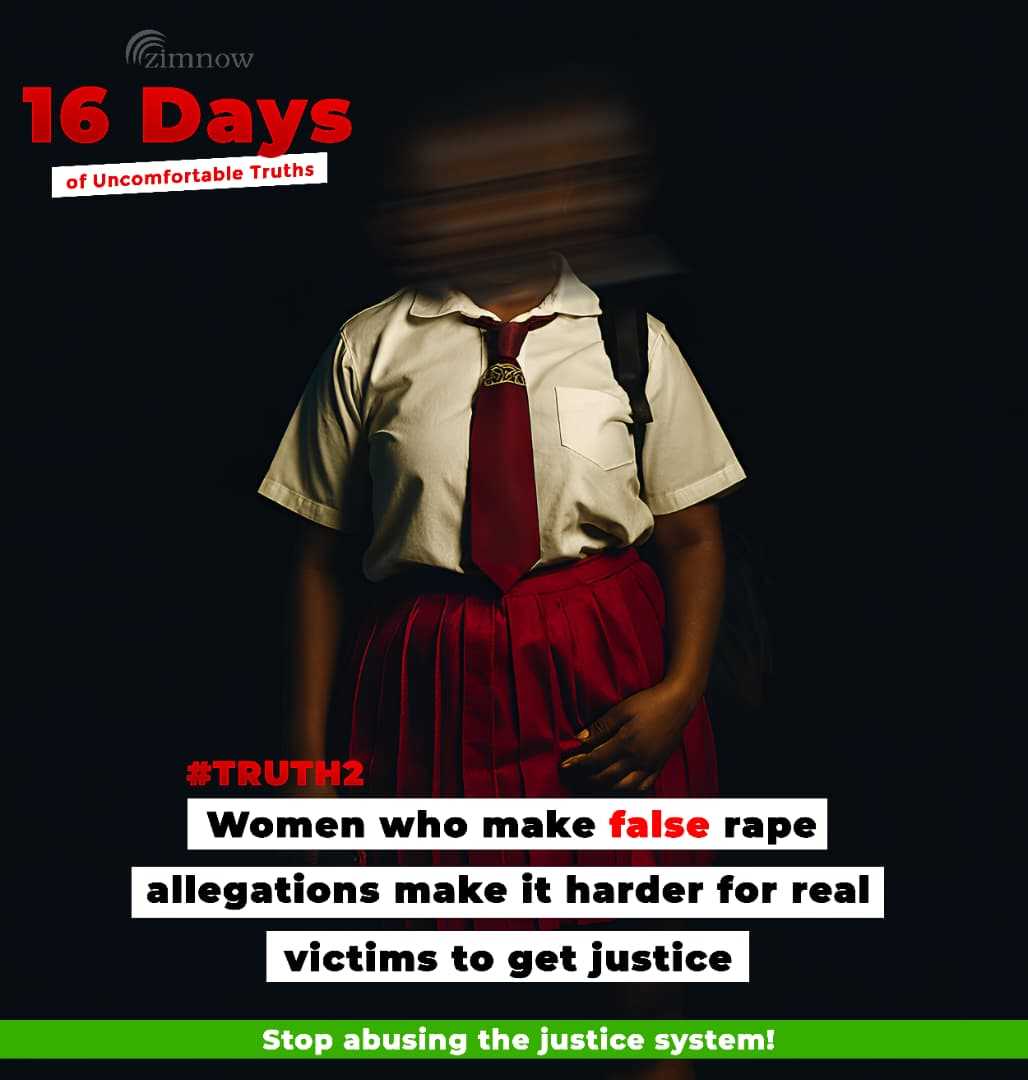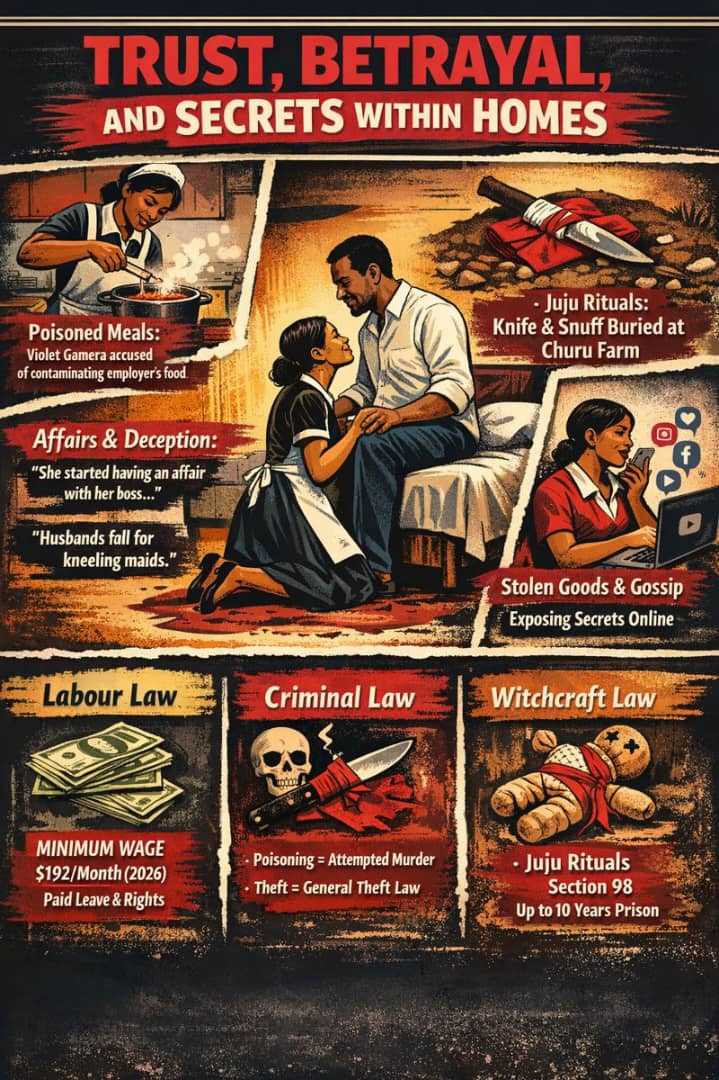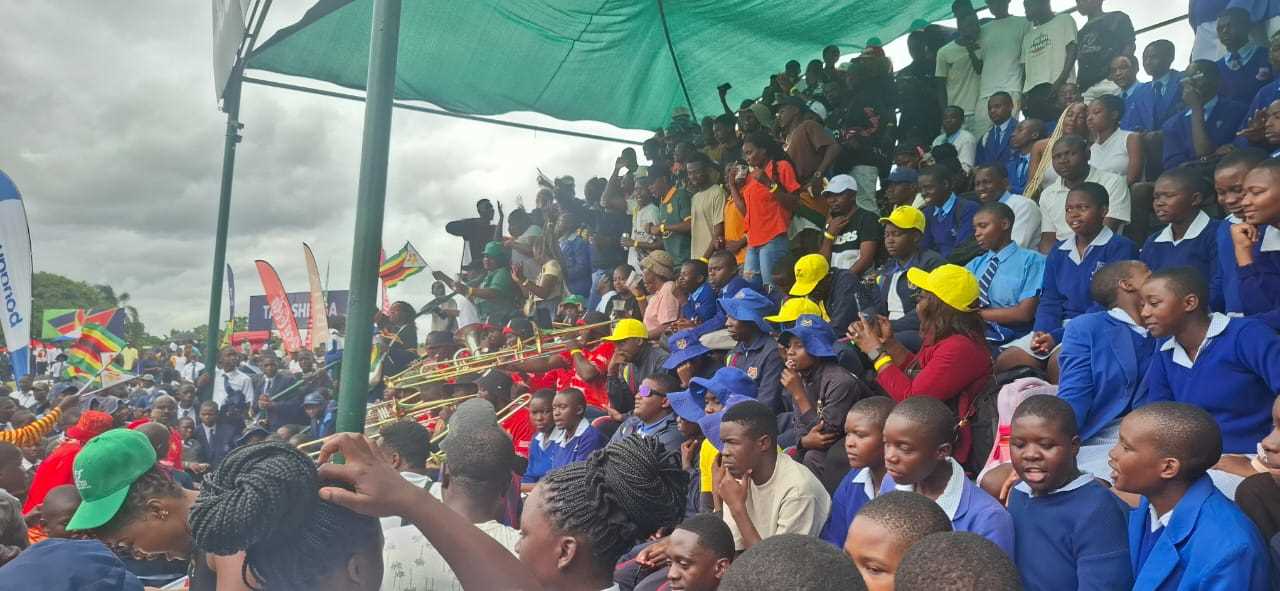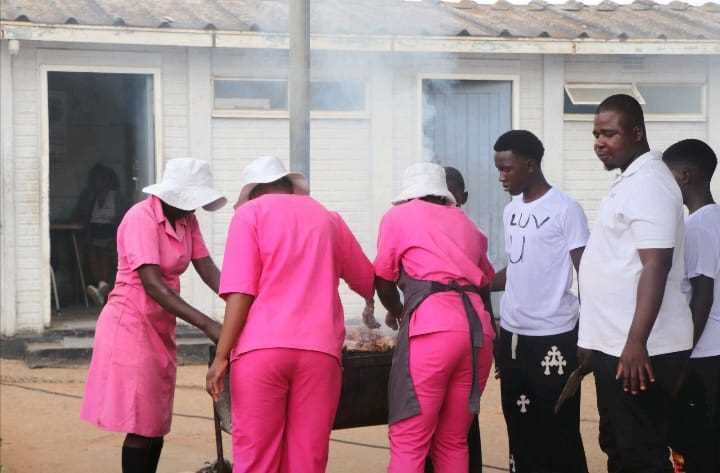
As Zimbabwe confronts the realities of gender-based violence during the 16 Days of Activism, one of the least discussed — yet most damaging — dynamics is the impact of false rape allegations. While they represent a small fraction of reported cases, their consequences are disproportionate and devastating.
For survivors fighting for justice in a system already strained by delays, stigma and under-resourced victim-friendly units, every false claim becomes an obstacle they must climb over.
The Uncomfortable Truth: When women fabricate rape claims — whether out of anger, revenge, manipulation, or to gain leverage — they do not just harm the man accused. They harm every real survivor who comes after them.
False allegations erode public trust in genuine cases. They fuel harmful online narratives questioning whether women tell the truth. They give defense lawyers and abusers ammunition to discredit victims.
And they make families, police, and communities more hesitant to believe survivors who urgently need help.
In a country where rape is vastly under-reported — especially in rural communities where fear, shame and family pressure keep victims silent — trust is everything. The more it is weakened through false reports, the harder it becomes to find justice.
Already, many survivors face humiliating questioning, secondary trauma, and community backlash as well as slut shaming. Add false reports into the mix, and the path to justice becomes even narrower.
This is why accountability matters. A fabricated claim is not just a personal conflict; it is a public harm that ripples through the justice system and undermines the fight against GBV.
But this truth must be handled carefully.
It must never be used to silence victims.
It must never be weaponised to disbelieve women by default.
It must never justify dismissing reports without proper investigation.
The point is not to shift blame to women — the point is to protect the integrity of the struggle for justice.
Related Stories
Where Do We Go From Here?
For Women:
Think about the weight of such an accusation.
A rape allegation is not a tool for revenge, negotiation or emotional leverage.
If we want a society that believes women, we must safeguard that belief.
For Online Communities:
Stop assuming every report is false — and stop assuming every woman is lying.
Let the system investigate, and let survivors speak without fear of being dismissed.
For Institutions:
Strengthen verification procedures, victim-friendly interviewing, and penalties for proven false reporting — without discouraging genuine victims from coming forward.
Justice requires balance: protecting the innocent while defending the vulnerable.
Breaking the GBV cycle starts with truth. And truth demands responsibility.
Tomorrow, we confront another uncomfortable truth — and another path toward change.




















Leave Comments